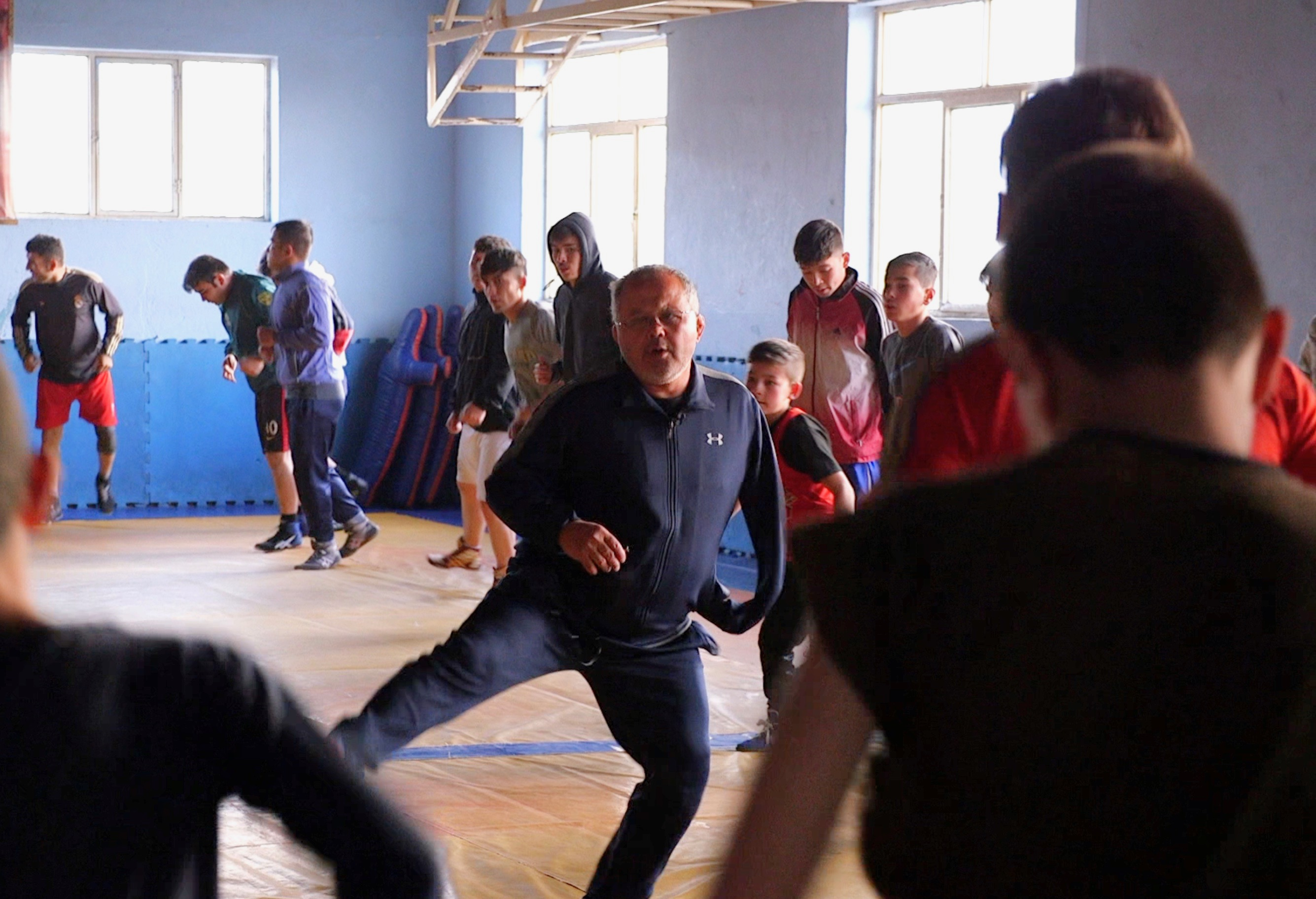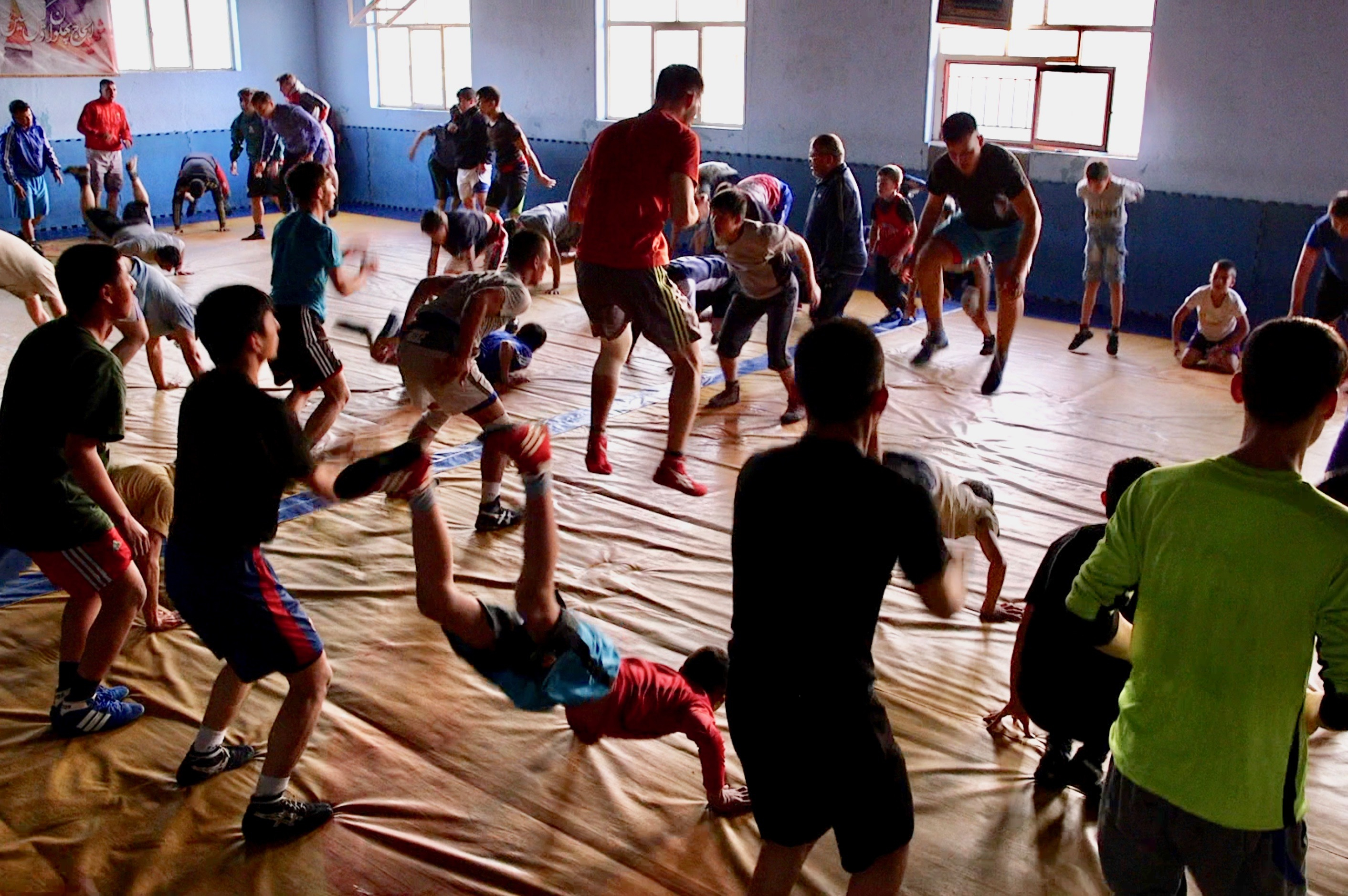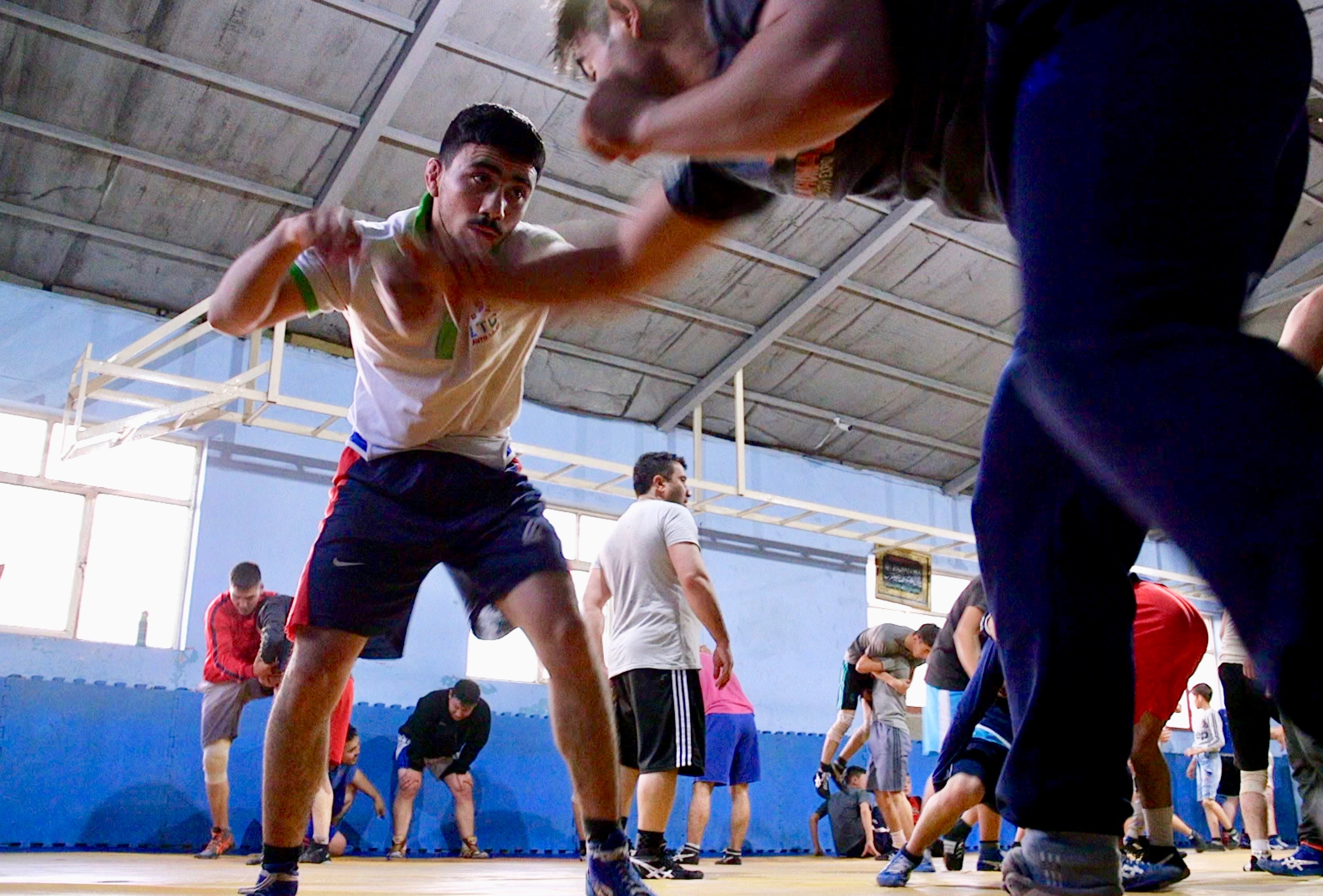
Coach Ghulam Abbas (C) leads the warm up at the Maiwand Wrestling Club in west Kabul, Afghanistan. /CGTN Photo
Coach Ghulam Abbas (C) leads the warm up at the Maiwand Wrestling Club in west Kabul, Afghanistan. /CGTN Photo
"Serving people is the main motivation I have in my life," says Ghulam Abbas, a former Afghan wrestling champion, as he prepares to leave his house to open the nearby Maiwand Wrestling Club in west Kabul, Afghanistan, where he is now the head coach.
Abbas is still adapting to simple tasks like putting on his shoes after he lost his left arm in a suicide bomb attack targeting the club in September last year, which left about 20 people dead and 70 injured, most of them wrestlers.
At the end of the road leading to the gym there are now concrete barriers to slow vehicles.
Abbas walks through them, then along the blast wall that has since been built to shield the club from car bombs, past the recently installed CCTV cameras and armed guards until he reaches the point where the first of two bombs detonated that night.

Warm up at the Maiwand Wrestling Club in west Kabul, Afghanistan. /CGTN Photo
Warm up at the Maiwand Wrestling Club in west Kabul, Afghanistan. /CGTN Photo
He points to a part of the wall that has been repaired, the blast streaks still visible.
"There was the heartbreaking moment. I fell to the ground, went unconscious maybe for some five to ten seconds. Then I got back on my feet, left through the same gate, the gate was gone, I kept walking and found myself in the middle of the street," he says.
As the sun sets, about 70 males gather to work out and wrestle. They range in age from pre-teens to a few old men with long white beards.
The club serves the ethnic Hazara community living in west Kabul, who are no stranger to violence and oppression.
In the 1990s, thousands of Hazara were killed by the Taliban and al Qaida.
Now ISIL has become the latest Sunni Muslim extremist group to target the Shiite Muslim minority.
Club attendance has more than doubled since the ISIL attack.

Sayad Basi (L), a local champion wrestler who was badly injured in the 2018 blast, in action with another wrestler at the Maiwand Wrestling Club in west Kabul, Afghanistan. /CGTN Photo
Sayad Basi (L), a local champion wrestler who was badly injured in the 2018 blast, in action with another wrestler at the Maiwand Wrestling Club in west Kabul, Afghanistan. /CGTN Photo
After throwing an opponent to the mat, Sayad Basi, a local champion wrestler who was badly injured in the 2018 blast, points to shrapnel scars on his arms and legs before lifting his shirt to reveal a long scar running vertically across his stomach.
He lost part of his lung and intestine in the explosion.
"For one or two blasts, or an attack, we don't give up and quit exercising, because we are tough and not scared of any attacks or blasts," says Basi.
"Even if there's another attack I'll come again, if I'm alive and able to."
Basi's defiance is shared by his coach, who believes it is the duty of all Afghans, not just the Hazara community, to stand firm in the face of mounting violence.
"Fleeing the country isn't the solution. The only way to get rid of the current situation is that all the tribes who live here must unite and fight," says Abbas, adding "or else the future of Afghanistan will be worse".